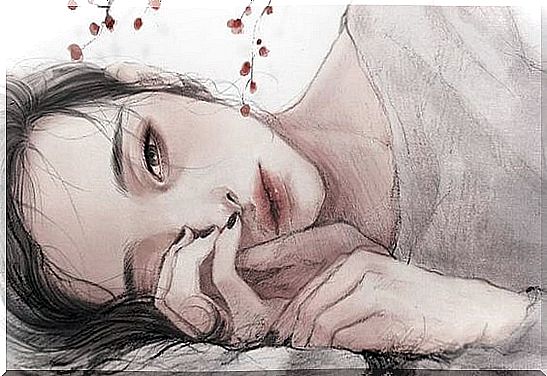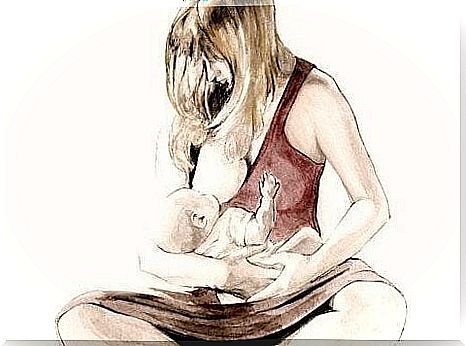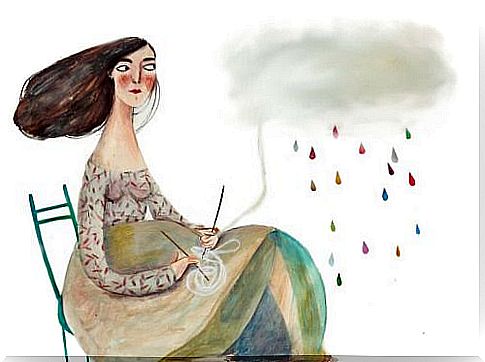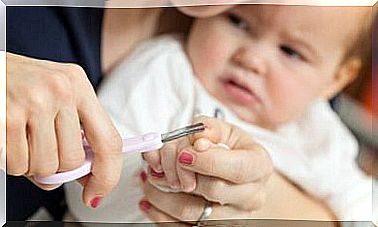Baby Blues – The Postpartum Period Is Not Always Rose Red

The postpartum period is not always dancing with roses.
After giving birth, the mother’s energy level is low and she may have fear states. Lack of sleep is exhausting and the needs of the little one are endless. There are few eras in life as complex and sensitive as the postpartum period – and often mothers are not properly prepared for it.
Many mothers who have gone through a complex, hard, and painful childhood period have certainly heard the urges of loved ones to take it easy, not give up, and enjoy the sweet moments of motherhood. Sayings like this no doubt reflect their fear that a new mother will develop postpartum depression.
However, not everyone knows that postpartum sadness can manifest to varying degrees and types. A lesser known postpartum depression is called baby blues . We will tell you more about this in our article this time.

The postpartum period is not rose red, but blue like baby blues
One thing many mothers experience after giving birth is the compulsive need to feel happy and be fully empowered and aware that she is living the best time of her life.
He will no doubt live the best time of his life, or live sooner or later. However, it can take a few months as it takes time for the body to recover and the hormones to stabilize. When all fears, pains, uncertainties, and worries are restored to the right perspective, the mother feels better about being a mother.
In these moments, a new mother needs the support and help of her loved ones more than ever. The mother’s partner should not hesitate to be the vital second half who helps the mother in her daily chores. In addition to this, the help, advice and experience of grandmothers and other mothers will really be needed.
Baby blues, i.e. the postpartum depression experienced by the mother
Nearly 80% of mothers experience an unspecified feeling of sadness in the postpartum period. Contrary to popular belief, this is perfectly normal.
A psychological phenomenon called baby blues is also known as postpartum depression. The expression embodies the reality experienced by many mothers, often based on the following:
- Hormonal changes in the body
- New and frightening responsibilities
- Unleashing of long-term tension
- Postpartum physical exhaustion from which the mother does not have time to recover due to her new responsibilities
- Re-perception of oneself when a woman becomes a mother, either for the first time or again – in the latter case, the mother’s responsibilities and challenges increase even more
It is important to note that baby blues is not the same thing as postpartum depression. During baby blues, the mother is exposed to unexplained depression for a few days or weeks. These days, the mother is like a veil of fog and overwhelmed with irritation, tears, and pain.
However, baby blues is a precise process. Baby blues and its sad melodies disappear quickly. They make room for even more intense and inspiring music that fills the mother with new nuances and motivation – this happens even though the mother is still tired.

How to distinguish between baby blues and postpartum depression?
Postpartum depression
- Postpartum depression is a serious psychological disorder.
- Postpartum depression is a state of depression that begins within a month or a few months of giving birth.
- Symptoms often resolve on their own within 2-6 months, but in some cases the state of depression lasts much longer.
- The mother may not be able to take care of herself or her baby, and may be completely powerless.
- About 10-15% of mothers develop postpartum depression.
- Sometimes a couple’s emotional problems trigger postpartum depression. Illness can also be caused by, for example, unemployment or the mother’s feeling that she is not getting enough support for the new challenge she is facing.
- Postpartum depression can be treated with medication and therapy.
Baby blues
- Starts immediately or almost immediately after delivery.
- Feeling of depression and irritability, which usually lasts from a few days to a few weeks.
- Medication or psychological help is usually not necessary. In the case of baby blues, talking to a partner, your own parents, or friends can have therapeutic and helpful effects. The cloud of sadness that rises above the mother eventually disappears by itself over time.
As you have read in our article, the feeling of depression and sadness after childbirth is normal. Society may put a lot of unnecessary pressure on the shoulders of new mothers with the idea that every mother who has just given birth should be immensely happy and full of energy.
What mothers especially need is time, peace, and support from the support network around them.









